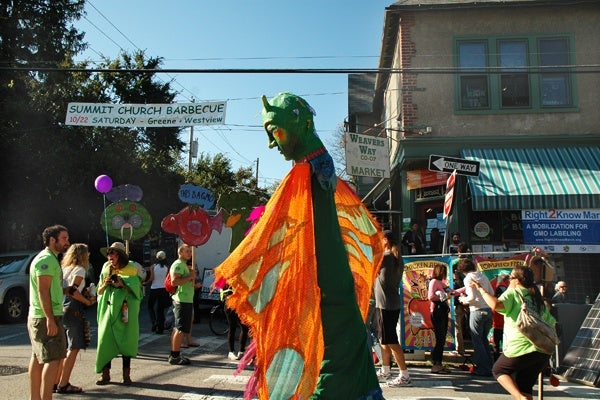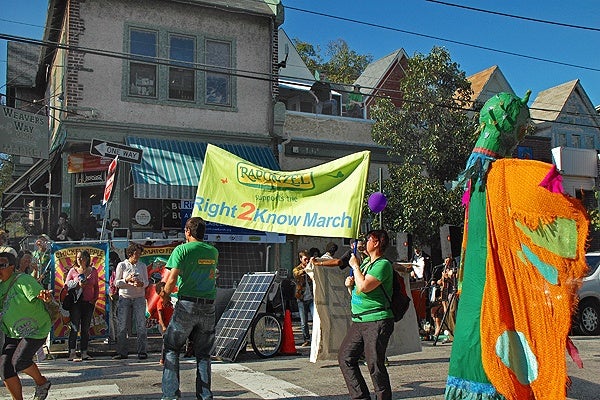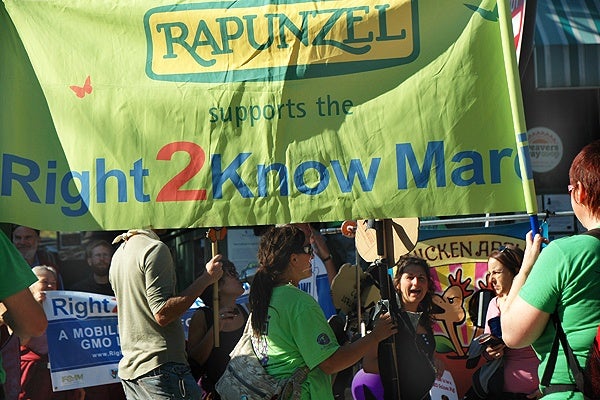Right2Know marchers visit Mt. Airy
Yesterday marchers with Right2Know stopped in Mt. Airy to raise awareness of the widespread use of genetically modified foods. The goal, organizers say, is to pressure the White House and Congress to require GMO labeling on all foods.
The march began in New York on Oct 1 and plan to arrive on Oct 16 in Washington D.C.
Over 50 marchers staged a rally in front of Weavers Way Co-op, which a major proponent of organic foods. Jon McGoran, a spokesman for the Co-op, said Right2Know reached out to them to host an event.
“It seemed like a no-brainer. We’re very much about natural and healthy foods,” he said.
Another reason Weavers Way is supporting Right2Know is that the Co-op itself cannot say with certainty that its inventory is GMO-free.
“For us we want to be able to tell our customers what we’re putting on our shelves. As it is now we cannot always tell them. We don’t always know,” McGoran said.
Today, the marchers are in University City to participate in a sustainability fair.
The debate
The modern food industry says it uses biotechnology to make food cheaper and safer. Opponents call this approach “Frankenfood.”
In the PBS documentary “Harvest of Fear,” it presents arguments for both sides of this debate.
Norman Borlaug with Texas A&M University tells PBS that science can help both the food industry and environmentalists.
“If we use high-yield technology, which we have done beautifully in the last 50 years, to increase the food that we need, we leave undisturbed vast tracts of marginal land which, if we opened to cultivation because of lack of rainfall or topography, would erode badly. They would become unproductive in a few years. Instead, [using] high-yield [agricultural practices] on the land [that is] best suited, you leave undisturbed many of these areas for wildlife habitat, for outdoor recreation, and for forestry.”
Jeremy Rifkin the president of The Foundation on Economic Trends says genetically modified foods also have huge risks.
“When you introduce a genetically modified organism into the environment, it’s not like introducing a chemical product, or even a nuclear product. Remember, [genetically modified] products are alive. So they’re inherently more unpredictable in terms of what they’ll do once they’re out into the environment. Secondly, GMOs reproduce. Chemical products don’t do that.”
WHYY is your source for fact-based, in-depth journalism and information. As a nonprofit organization, we rely on financial support from readers like you. Please give today.







